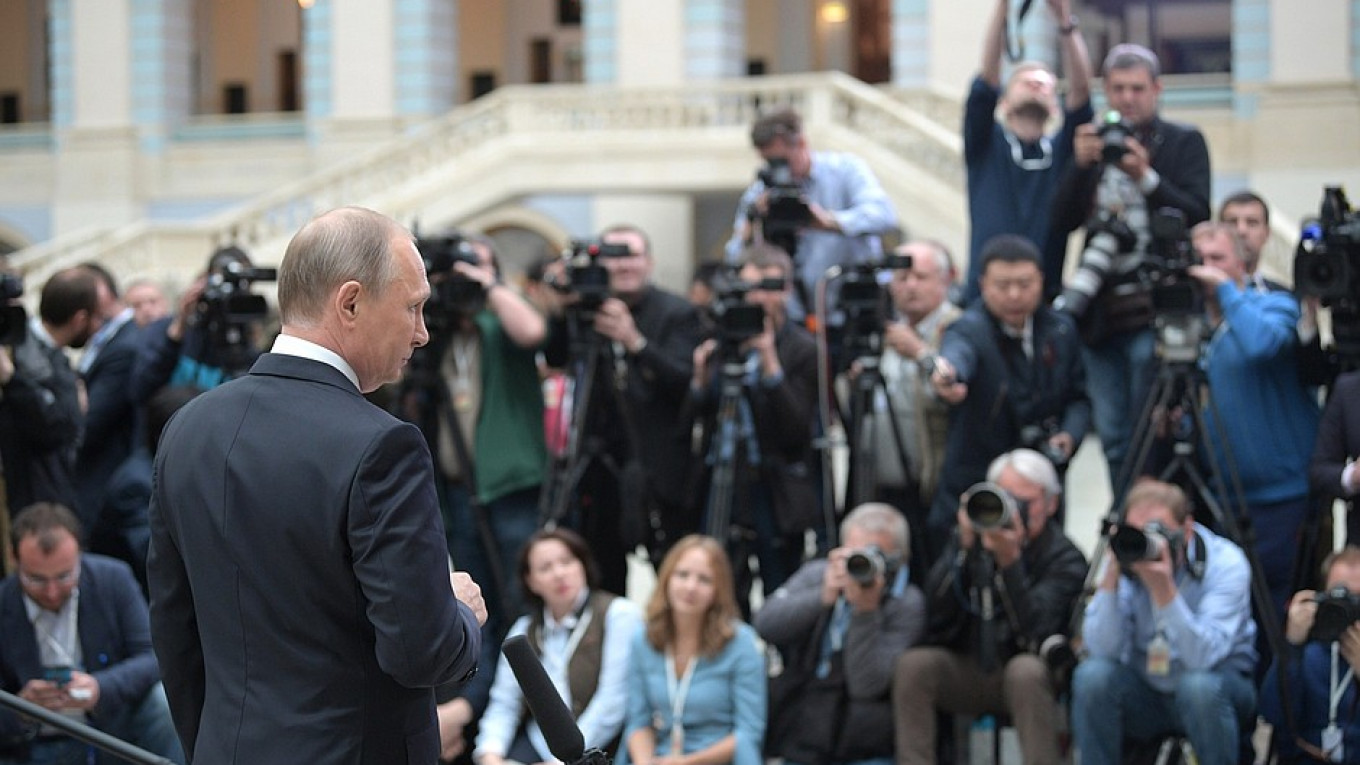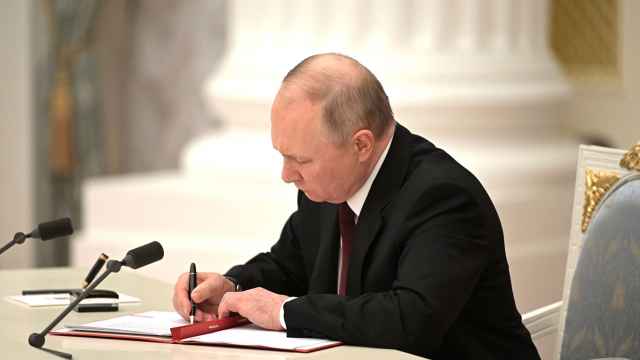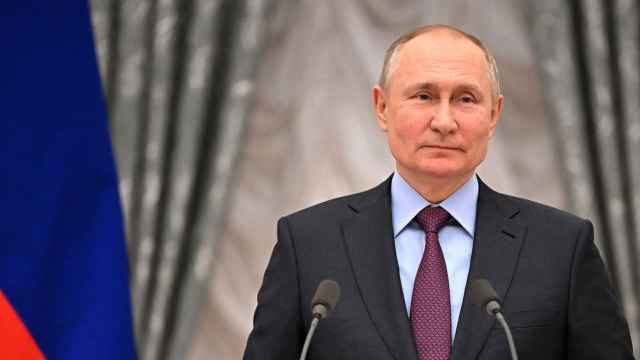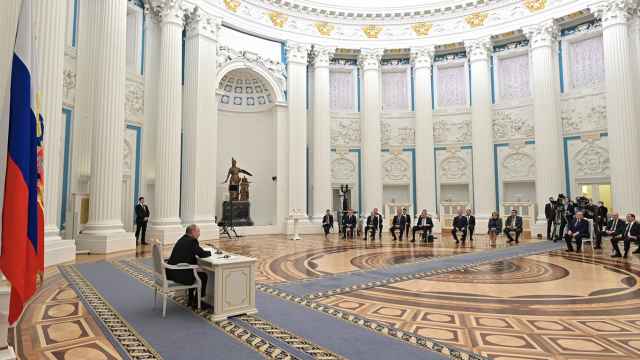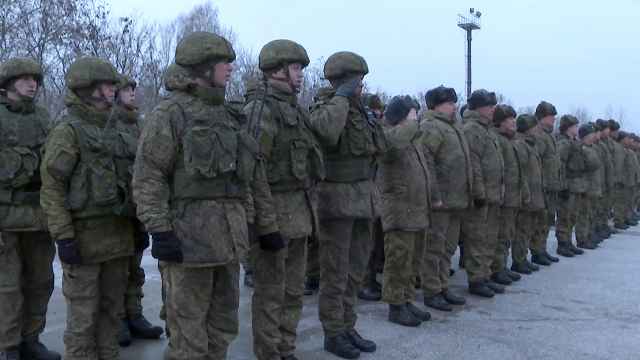A year after the beginning of Putin’s latest term and five years before its end, the Kremlin doesn't seem to consider the transition of power as one of their most pressing political concerns.
Even if certain projects are currently being put together — a successor or political reform — the chances of these projects failing are incomparably greater than the chances of them being realized, and it seems far more natural for there to be a lack of clarity surrounding 2024 than that anything be clear.
Nonetheless, it is obvious why conversations about transition have become so popular — they reflect a need that is completely existential and real. After all, it’s not only in relation to 2024 that there’s no clarity in Russia today — there’s no clarity in relation to anything.
Searching for logic is less unbearable than admitting that there is none in principle.
To assume that all the Kremlin’s actions are linked to its plans for the future is psychologically easier than to recognize that in fact political chaos has been at reign in Russia for a long time now.
It is harder to admit that the resilience of the system is conditioned not by the fact that it is well built, but on the contrary — by the fact that all its elements are in ruins, and cannot fall any further apart.
The entire experience of Putin’s 20 years in power proves that the system has no real ability to plan for the future, but this flaw is compensated for by a capacity to react to external events, whether it be the Maidan uprising in Ukraine, Western sanctions or protests within Russia.
For example, Crimea was annexed by Russia not because Putin saw it as his historical mission, but because the revolution in Ukraine required an instant Russian response. The state conservatism of the early 2010s was not the result of a value-based choice of the Kremlin, but a situational reaction to large-scale Bolotnaya protests that rocked Russia in 2011 and 2012. The state conservatism of the early 2010s was the result of a situational reaction to the Bolotnaya protests and not the result of a value-based choice.
The real script for the transition of power in Russia will be written not by Kremlin scriptwriters but will be made by the Russian opposition, some Ukrainian (or Belarussian?) radicals or even American senators.
It is surprising, but the Kremlin does not know how to how to initiate change — it is capable only of responding to challenges from the outside.
Responding in a exaggerated fashion, inappropriately, but precisely that: responding and monitoring the course of events, rather than shaping them.
In one popular surreal novel from the early 2000s, Putin turned into a rainbow then locked himself into the cockpit of a plane, didn’t come out for ages, and when the pilots opened the door, there was nobody there.
What once seemed an exaggeration now seems to be the only adequate description of the mechanics of power; Russia without Putin is not so much an opposition slogan as a secret formula for the real management of the country, and what is called a transition is, in fact, the permanent state of the system, which seems to be constantly waiting for something and survives exclusively on this waiting.
Putin’s 20-year anniversary is in itself a drawn-out transition — only it is unclear in what direction things are moving.
We have become used interpreting the apparently conciliatory nature of the Kremlin’s reactions to recent events such as the protests in Yekaterinburg and the release of investigative journalist Ivan Golunov, as the authorities taking a new stance.
In fact, the Kremlin responded to challenges before just as it is now doing; in principle, nothing has changed. But what if society has gotten the hang of the authorities' habits and has learned to structure dialogue with them in such a way as to guarantee compromise?
And if the logic of the behavior of the authorities is traditionally dictated by their external opponents, then it is completely natural that Russian society is learning to manipulate the authorities, using their fears, habits and indulgences.
If Putin himself in his time was the Kremlin’s answer to society’s demands in 1999, then the future transformation of power will somehow or other be tied to what the Russian people want, and not the Kremlin.
Of course, it is customary to see democracy somewhat differently, but authoritarianism, in which all actions are based on external bogeymen, is also a kind of democracy.
And now the time has come for me to make a strange kind of hypothesis: for some reason, everyone is waiting for some kind of decision from Putin, but in fact this decision will be taken by the people. Not at the ballot box, of course, but what difference does it really make?
A Russian version of this article was originally published by Republic
A Message from The Moscow Times:
Dear readers,
We are facing unprecedented challenges. Russia's Prosecutor General's Office has designated The Moscow Times as an "undesirable" organization, criminalizing our work and putting our staff at risk of prosecution. This follows our earlier unjust labeling as a "foreign agent."
These actions are direct attempts to silence independent journalism in Russia. The authorities claim our work "discredits the decisions of the Russian leadership." We see things differently: we strive to provide accurate, unbiased reporting on Russia.
We, the journalists of The Moscow Times, refuse to be silenced. But to continue our work, we need your help.
Your support, no matter how small, makes a world of difference. If you can, please support us monthly starting from just $2. It's quick to set up, and every contribution makes a significant impact.
By supporting The Moscow Times, you're defending open, independent journalism in the face of repression. Thank you for standing with us.
Remind me later.



